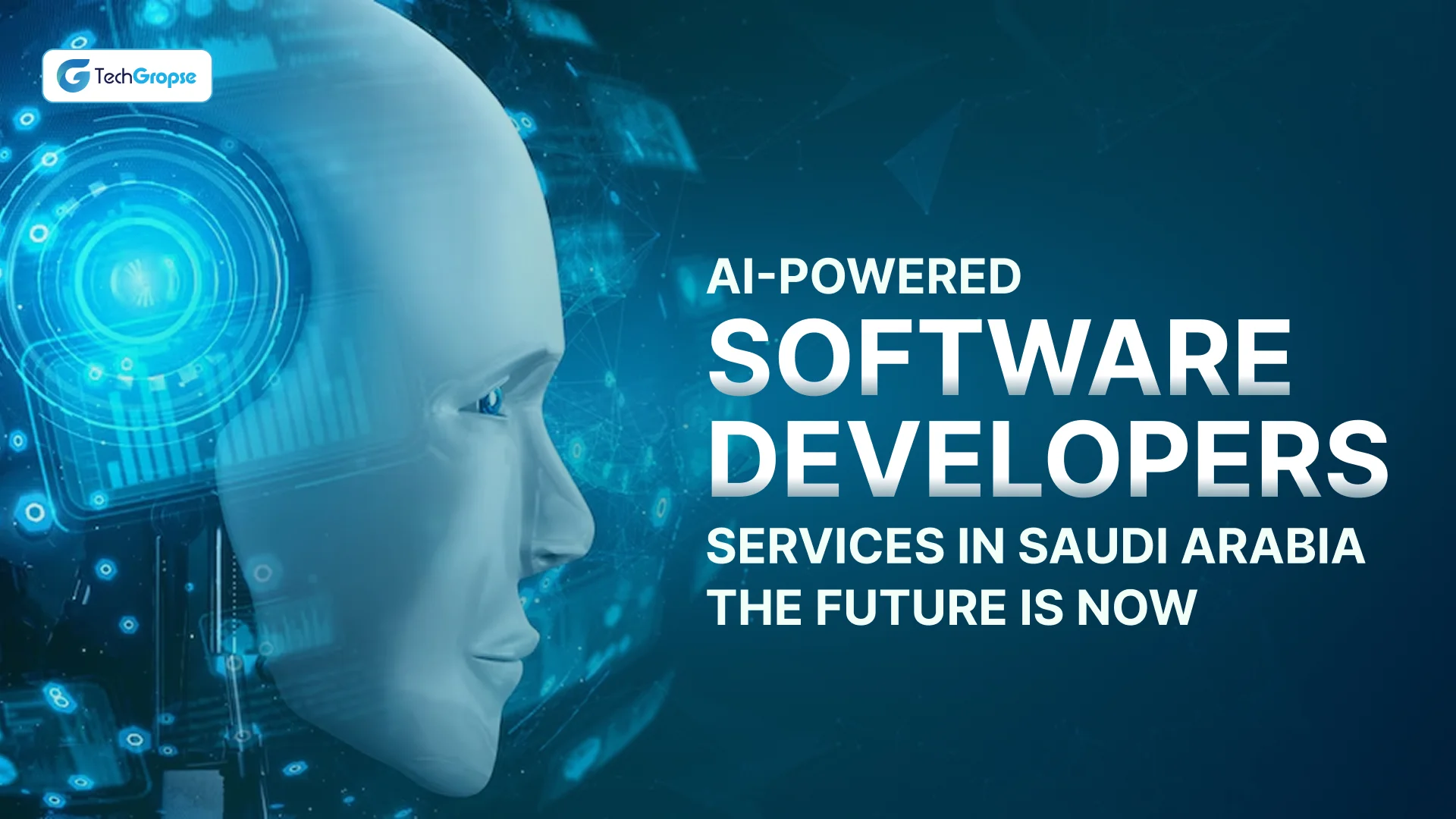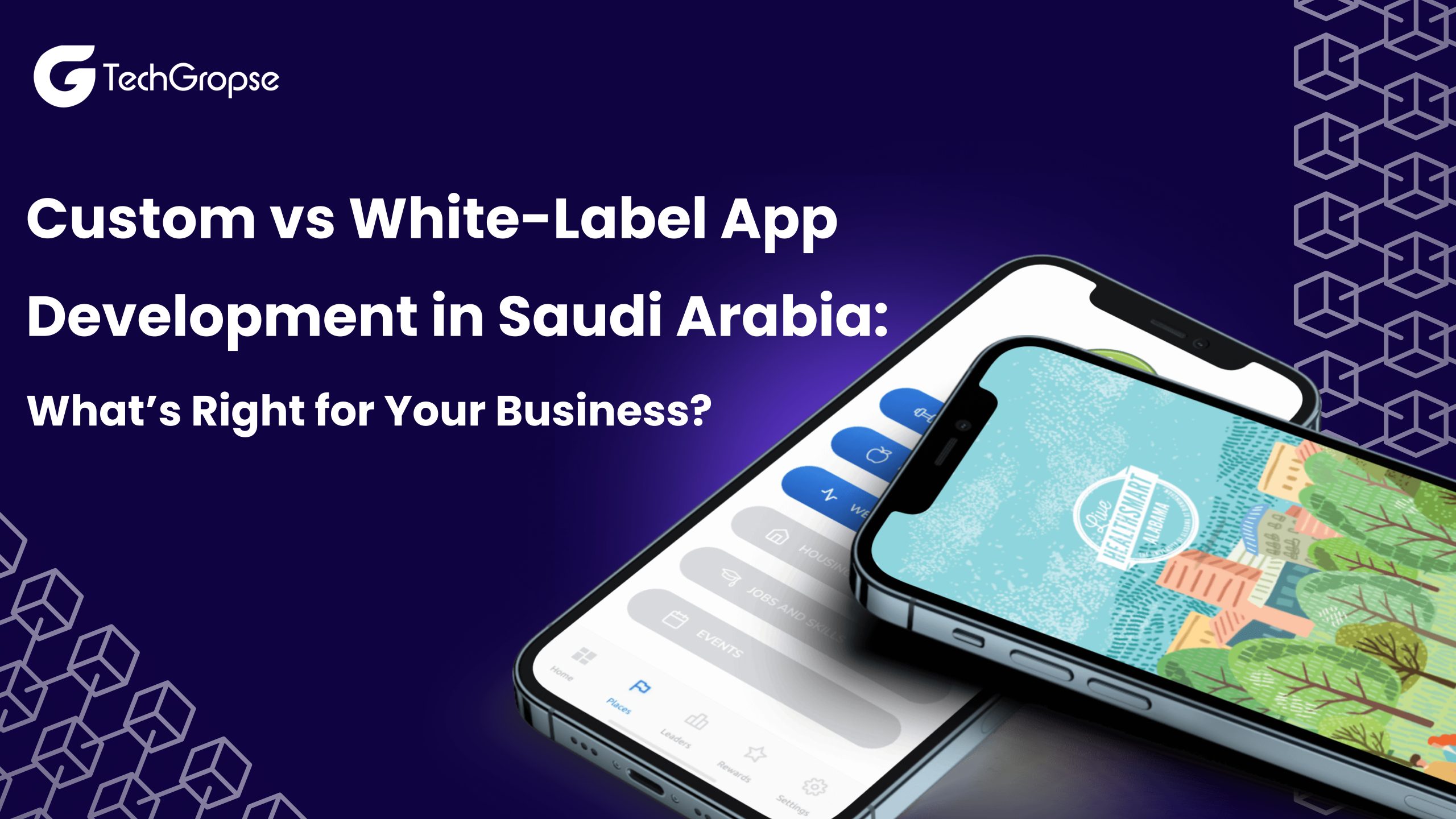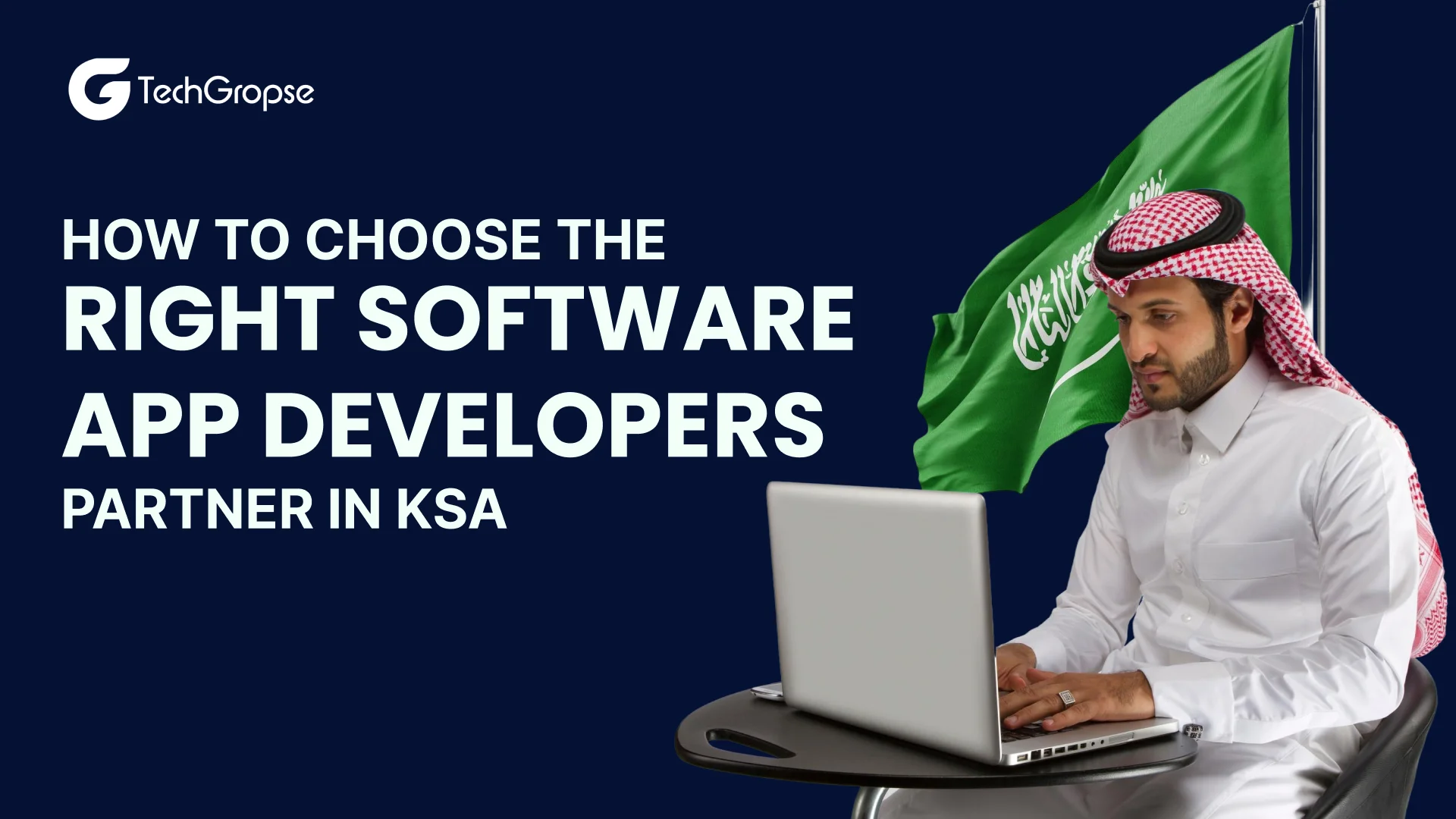In the age of rapid technological advancement, there’s a whisper in the wind—a promise of endless possibilities and untapped potential. It is the power of AI app development in Dubai UAE—a fusion of science and artistry that transforms raw data into actionable intelligence, shaping the way we live, work, and interact with the world around us.
It’s the dawn of a new world, where machines think, learn, and create with a brilliance that rivals our own. Imagine a world where your smartphone isn’t just a device—it’s your assistant, your confidant, your gateway to a universe of knowledge and insight.
From intelligent chatbots that converse with us in natural language to predictive analytics systems that anticipate our needs before we even know them, AI-powered apps are revolutionizing every aspect of our lives.
They are the invisible hands guiding us through the chaos of modern existence, offering insights, solutions, and moments of clarity in a world that’s constantly in motion.
This post explores crucial factors that individuals and businesses need to know before embarking on app development in UAE.
What is Artificial Intelligence?
Artificial Intelligence (AI) refers to the simulation of human intelligence in machines that are programmed to think, learn, and perform tasks typically requiring human intelligence.
In simpler terms, AI involves creating computer systems capable of performing tasks that would normally require human intelligence, such as problem-solving, decision-making, language understanding, and visual perception.
AI systems are designed to analyze data, recognize patterns, and make decisions based on that analysis. They can learn from experience, adapt to new inputs, and improve over time, much like humans do.
AI technology encompasses a wide range of applications, including machine learning, natural language processing, computer vision, robotics, and expert systems.
Current State of AI Industry in Dubai
The current state of AI in the mobile app development industry is characterized by rapid growth and innovation.
With AI technologies integrated into mobile applications to enhance user experiences, improve efficiency, and enable new functionalities.
From intelligent personal assistants to advanced recommendation systems, AI-powered features are becoming increasingly prevalent in mobile apps across various domains.
- Lots of companies are starting to use AI in their systems – like, 37% of them. And get this – that number is supposed to go up by a whopping 270% in the next few years.
- The global market for AI software is expected to hit $126 billion by 2025. 95% of the time when you talk to customer service, you might be talking to a robot.
- The mobile AI market is also growing fast – it’s supposed to reach $34.56 billion by 2028. That’s a huge increase from $11.27 billion in 2023.
- It’s estimated that AI could bring in a whopping $320 billion to the region, with the UAE leading the charge and making up about 14% of its GDP by 2030
What is the Role of AI in Mobile App Development?
The role of AI in mobile app development is multifaceted and increasingly significant, as AI technologies continue to reshape the landscape of mobile applications.
AI plays a pivotal role in enhancing user experiences, improving app functionality, and optimizing development processes.
Here are some key aspects of the role of AI App development in Dubai
1. Personalization
AI enables mobile apps to deliver personalized experiences tailored to individual users’ preferences, behaviors, and interests. By analyzing user data and patterns, AI algorithms can recommend relevant content, products, and services, thereby increasing user engagement and satisfaction.
2. Natural Language Processing (NLP)
AI-powered NLP capabilities enable mobile apps to understand and respond to natural language queries and commands. Virtual assistants like Siri, Google Assistant, and Alexa utilize NLP to interact with users, perform tasks, and provide information, enhancing the overall user experience.
3. Predictive Analytics
AI algorithms can analyze vast amounts of data to identify patterns, trends, and correlations, enabling mobile apps to make predictive recommendations and decisions. For example, predictive analytics can be used in e-commerce apps to forecast customer preferences and recommend products, or in healthcare apps to predict disease outbreaks or patient outcomes.
4. Automation
AI-driven automation tools streamline various aspects of mobile app development, from code generation and testing to deployment and maintenance. Automated testing frameworks powered by AI can identify bugs, optimize performance, and ensure app reliability across different devices and platforms, reducing development time and costs.
5. Image and Speech Recognition
AI-powered image and speech recognition capabilities enable mobile apps to interpret and analyze visual and auditory inputs. This technology is used in augmented reality (AR) filters, facial recognition authentication, and language translation, enhancing user interaction and accessibility.
6. Security and Fraud Detection
AI algorithms can detect and mitigate security threats, unauthorized access, and fraudulent activities within mobile apps. AI-powered security solutions enhance app security and protect sensitive data from breaches and attacks by analyzing user behavior and identifying anomalous patterns.
7. Contextual Awareness
AI enables mobile apps to understand and respond to contextual cues such as location, time, and user context. Context-aware apps can deliver relevant information, notifications, and services based on the user’s current situation, increasing app usefulness and relevance.
From Idea to Implementation: Steps to Take Before Developing an AI App in Dubai
The future looks bright for AI app development in Dubai. With the government’s push towards becoming a global tech hub, there’s a growing demand for innovative AI solutions. It’s like the city is saying, “Hey Siri, let’s make some magic happen!”
1. Regulatory Environment and Compliance
Before delving into AI app development in Dubai, it’s crucial to understand the regulatory environment and compliance requirements governing such initiatives. The UAE government has implemented various regulations and guidelines to ensure the ethical and responsible use of AI technology. It includes laws related to data privacy, cybersecurity, and AI ethics.
One of the most significant regulatory frameworks in Dubai is the Dubai Data Law, which aims to regulate the collection, sharing, and use of data within the city. AI app developers must ensure compliance with these regulations to avoid legal repercussions and maintain the trust of users.
Furthermore, understanding the ethical implications of AI development is essential. Hire mobile app developers in UAE who must prioritize fairness, transparency, and accountability in their AI algorithms to prevent bias and discrimination.
2. Cultural Sensitivity and Localization
Dubai is a melting pot of cultures, with a diverse population consisting of people from various backgrounds and nationalities. When an app development company in UAE develops AI applications for the Dubai market, it’s crucial to consider cultural sensitivity and localization.
AI algorithms should be tailored to accommodate cultural nuances and preferences, ensuring that the applications resonate with the local population. It includes language support, cultural references, and user interface design.
Moreover, You should hire web app developers in Dubai who are mindful of the diverse linguistic landscape in Dubai, where Arabic and English are widely spoken.
3. Collaboration and Partnerships
In Dubai’s rapidly evolving AI ecosystem, collaboration and partnerships play a vital role in driving innovation and growth. Developers looking to venture into AI app development should explore opportunities for collaboration with government entities, research institutions, and industry stakeholders.
Government-led initiatives such as the Dubai AI Ethics Board and the Dubai Future Accelerators provide platforms for collaboration between developers and policymakers. Engaging with these initiatives can not only facilitate access to resources and funding but also foster a supportive ecosystem for AI innovation.
Furthermore, forging partnerships with local businesses and organizations can help developers gain insights into the specific needs and challenges of the Dubai market.
4. Talent Acquisition and Skill Development
Building a successful AI application requires to hire AI app developers in Dubai with expertise in data science, machine learning, software development, and domain-specific knowledge. In Dubai, attracting and retaining top talent in the field of AI can be a competitive challenge.
Developers should invest in talent acquisition strategies, such as recruitment drives, internship programs, and partnerships with educational institutions. Offering competitive salaries, benefits, and opportunities for professional development can help attract the best talent to join AI development teams.
Moreover, AI developers in Dubai should prioritize continuous skill development and training to keep pace with the evolving landscape of AI technology. It includes staying updated on the latest advancements, participating in workshops and conferences, and obtaining relevant certifications.
Revolutionizing Technology: Top 6 AI Apps You Need to Know
There are several famous examples of AI-powered apps that have made significant impacts across various industries. Here are a few notable examples:
| Application | Description |
| Google Maps | Utilizes AI for navigation, real-time traffic updates, and personalized route suggestions. |
| Netflix | Uses AI algorithms for personalized content recommendations based on viewing history and preferences. |
| Amazon Alexa | Virtual assistant powered by AI and natural language processing (NLP) capabilities. |
| Tesla Autopilot | Advanced driver-assistance system utilizing AI and computer vision technology for semi-autonomous driving. |
| Snapchat | AR filters powered by AI algorithms for facial recognition and interactive digital effects. |
| Prisma | Photo editing app employs AI for applying artistic filters to photos based on famous artistic styles. |
These are just a few examples of AI-powered apps that have gained widespread popularity and recognition for their innovative use of artificial intelligence technologies.
How AI is Shaping App Development in Different Industries?
AI technologies are being increasingly integrated into app development across various industries, revolutionizing processes, enhancing user experiences, and driving innovation.
Here are some industry-specific use cases of AI app development in Dubai:
1. Healthcare
- Diagnosis and Treatment: AI-powered healthcare apps use machine learning algorithms to analyze medical images (such as X-rays, MRIs, and CT scans) and assist healthcare professionals in diagnosing diseases and conditions.
- Remote Patient Monitoring: AI-driven apps enable remote monitoring of patient’s health metrics (such as heart rate, blood pressure, and glucose levels) using wearable devices and sensors. The apps can detect anomalies and alert healthcare providers to potential health issues in real-time.
2. Finance
- Fraud Detection: AI algorithms analyze transaction data and user behavior patterns to detect fraudulent activities and prevent unauthorized access to financial accounts. These apps can identify suspicious transactions, flag potential security threats, and protect users’ financial assets.
- Investment and Trading: AI-powered investment apps utilize machine learning algorithms to analyze market trends, predict price movements, and recommend investment strategies to users.
3. Retail
- Personalized Recommendations: AI-driven retail apps analyze customer data, purchase history, and browsing behavior to provide personalized product recommendations and promotions.
- Visual Search: AI-powered retail apps enable users to search for products using images captured with their smartphone cameras. The apps use computer vision technology to analyze the visual characteristics of products and match them to similar items in the inventory, simplifying the shopping process.
4. Education
- Adaptive Learning: AI-driven education apps personalize learning experiences for students by adapting the content and pace of instruction to individual learning styles and abilities. These apps use machine learning algorithms to assess students’ performance, identify areas of weakness, and provide targeted feedback and support.
- Language Learning: AI-powered language learning apps utilize natural language processing (NLP) and speech recognition technology to help users improve their language skills. The apps can assess users’ pronunciation, grammar, and vocabulary usage, and provide interactive lessons and exercises to facilitate language acquisition.
5. Travel and Hospitality
- Travel Planning: AI-driven travel apps analyze user preferences, travel history, and budget constraints to recommend personalized travel itineraries, accommodations, and activities. These apps can also provide real-time information on flights, hotels, and local attractions.
- Customer Service: AI-powered hospitality apps use chatbots and virtual assistants to provide customer support and assistance to travelers. The apps can answer common questions, make reservations, and address customer concerns in multiple languages, enhancing the overall travel experience.
These are just a few examples of how AI is being leveraged in app development to address specific challenges and opportunities in different industries.
As AI technologies continue to evolve, app development company in Dubai can focus on building more innovative applications that transform the way we work, live, and interact with technology.
The Game-Changing Benefits of AI Integration in Mobile App Development
The integration of Artificial Intelligence (AI) into mobile app development brings forth a multitude of benefits, enhancing user experiences, improving efficiency, and unlocking new opportunities for innovation.
Here are the top benefits of using AI in mobile app development:
1. Enhanced User Engagement
AI-powered features such as chatbots, virtual assistants, and recommendation systems can engage users in interactions, providing assistance, information, and entertainment. Increased engagement can result in longer session times, higher retention rates, and greater user loyalty.
2. Improved User Interfaces
AI can enhance the usability and intuitiveness of mobile app interfaces by enabling natural language processing (NLP), speech recognition, and gesture recognition capabilities. It allows users to interact with apps more seamlessly, reducing friction and improving overall user satisfaction.
3. Predictive Analytics
An ideal Android app development company Dubai works on various AI algorithms that can analyze vast amounts of data to identify patterns, trends, and correlations, enabling mobile apps to make predictive recommendations and decisions. It can include predicting user behavior, optimizing content delivery, and anticipating future needs, thereby enhancing the user experience and driving engagement.
4. Automation of Tasks
AI-driven automation tools streamline various aspects of mobile app development, from code generation and testing to deployment and maintenance. Automated processes can accelerate development cycles, reduce manual errors, and improve overall app quality, resulting in faster time-to-market and lower development costs.
5. Enhanced Security
AI-powered security solutions can detect and mitigate security threats, unauthorized access, and fraudulent activities within mobile apps. By analyzing user behavior and identifying anomalies, AI algorithms can enhance app security and protect sensitive data from breaches and attacks, thereby building user trust and confidence.
Closing Words
Embarking on AI app development in Dubai, UAE, presents exciting opportunities for innovation and growth.
However, it’s essential to navigate the regulatory, cultural, and technological landscape effectively to succeed in this endeavor.
By understanding the regulatory environment, embracing cultural sensitivity, fostering collaboration, and investing in talent acquisition, developers can position themselves for success in Dubai’s thriving AI ecosystem.
With careful planning and execution, AI applications developed in Dubai have the potential to drive a positive impact and contribute to the city’s vision of becoming a global leader in artificial intelligence.
FAQs
AI app development in Dubai is governed by various regulatory frameworks, including the Dubai Data Law, which regulates the collection, sharing, and use of data.
There are numerous opportunities for collaboration in AI app development in Dubai, including partnerships with government entities, research institutions, and industry stakeholders.
Developers can address ethical implications by prioritizing fairness, transparency, and accountability in AI algorithms. It includes implementing bias detection and mitigation techniques, ensuring transparency in AI decision-making processes, and adhering to ethical guidelines and best practices.









